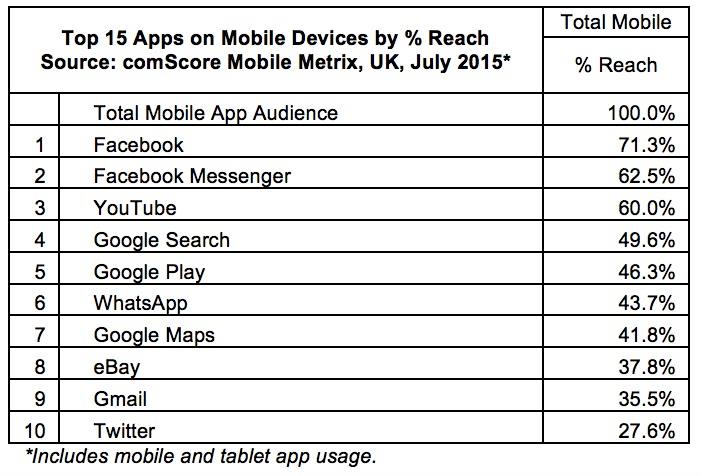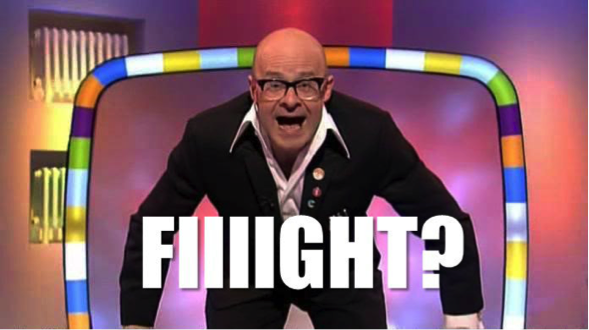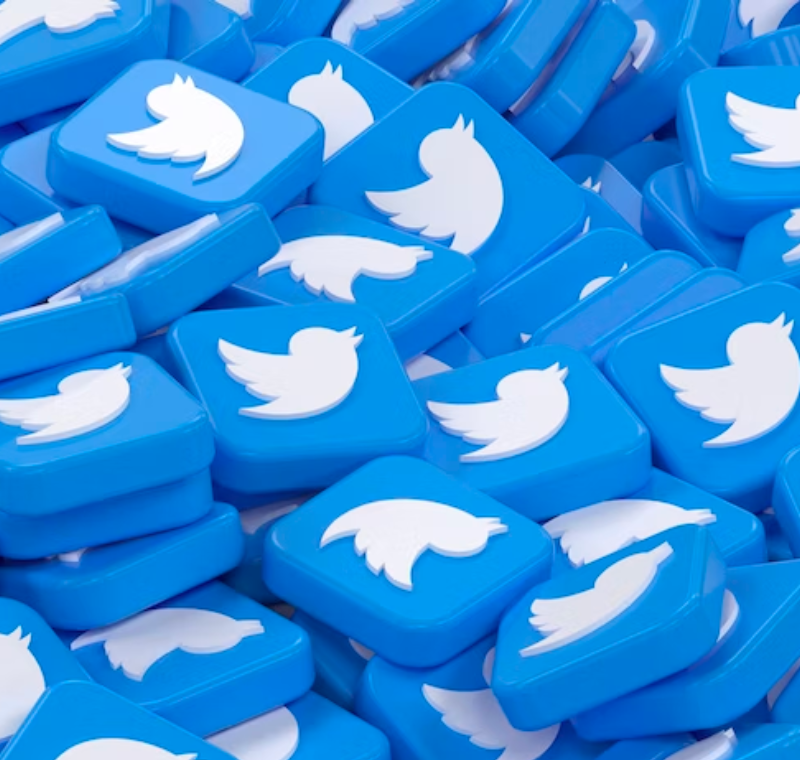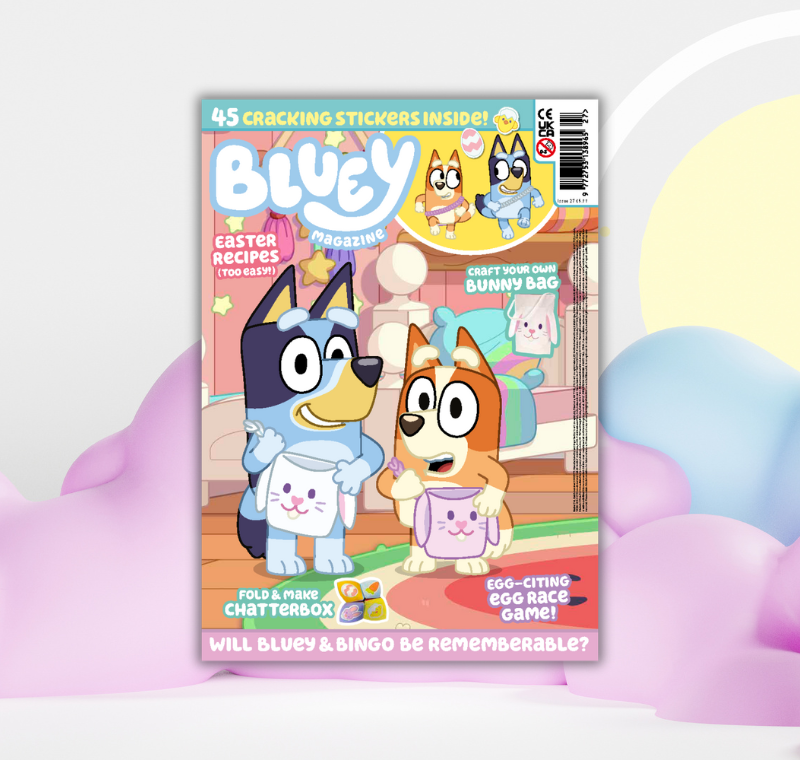WhatsApp: more popular than Facebook?
In July 2015, WhatsApp ranked sixth in a comScore study of the Top 10 Apps on mobile devices by percentage reach. Facebook was the most popular mobile app with a 71.3 per cent reach of the total UK mobile population, followed by Facebook Messenger (62.5 per cent), YouTube (60.0 per cent), Google Search (49.6 per cent), and Google Play (46.3 per cent). WhatsApp followed in sixth place with a 43.7 per cent reach.

However, scrutinise this data further and you’ll find that the comScore figures relate to a combined reach of both smartphone and tablet usage. This means that the Facebook and Facebook Messenger apps are given a much larger playing field on which to accumulate users, whereas WhatsApp is used exclusively on smartphones. Look again at its rank within the context of that platform limitation and you begin to get a feel for the popularity of the service.
The 1 billion day versus the 900 million month
Follow that analysis onto its logical conclusion and compare the two sets of figures released by Facebook itself in recent weeks. On Thursday 27th August 2015, Mark Zuckerberg revealed that Facebook had received over 1 billion visitors in a single day for the first time in its history. Little over one week later on Friday 4th September 2015 the CEO of WhatsApp, Jan Koum, revealed that the service now attracts 900 million active users per month.
100 million users is one heck of a deficit, and 1 billion users in a single day vs. 900 million in a single month even moreso – we are not dealing in apples to apples here. But just think about those numbers for a second. Facebook, the all-singing, all-dancing, public networking, social media posterboy of the modern world, available across desktop, laptop, iPad, browser, app and all. Versus WhatsApp, which has reportedly added 100m global users in the last 4 months alone. It doesn’t seem like such a huge leap to make to assume that the once untoppleable Facebook could soon no longer find itself the most favoured communications tool on the planet.

Of course from a competition point of view, this is all academic. Because Facebook owns WhatsApp and Facebook Messenger already sits across multiple platforms, meaning a splicing of the technologies in the future is looking increasingly likely, and would maintain Facebook’s brand dominance.
But what it does tell us is perhaps something more interesting about the nature of social media and the shift back towards private from public sharing. The last 10 years have seen a mass exodus onto social networks, where the private becomes public and we have all to an extent reinvented our lexicon for the new online world. The shift back towards something more akin to old-skool text messaging would indicate an intrinsic need within the human psyche to keep some conversations more personal, to be networked by choice rather than default.
It will itself be a huge milestone in the Dark Social shift when WhatsApp itself reaches the 1 billion mark. As for me, I’ll probably share that story at large on my public profile, and explore its intricacies in greater detail on the private chat.
More like this
Publishers love Whatsapp’s potential, but struggle with execution
Why Facebook now sends more traffic to news sites than Google
Snapchat now drawing 4bn video views per day, challenging Facebook video









